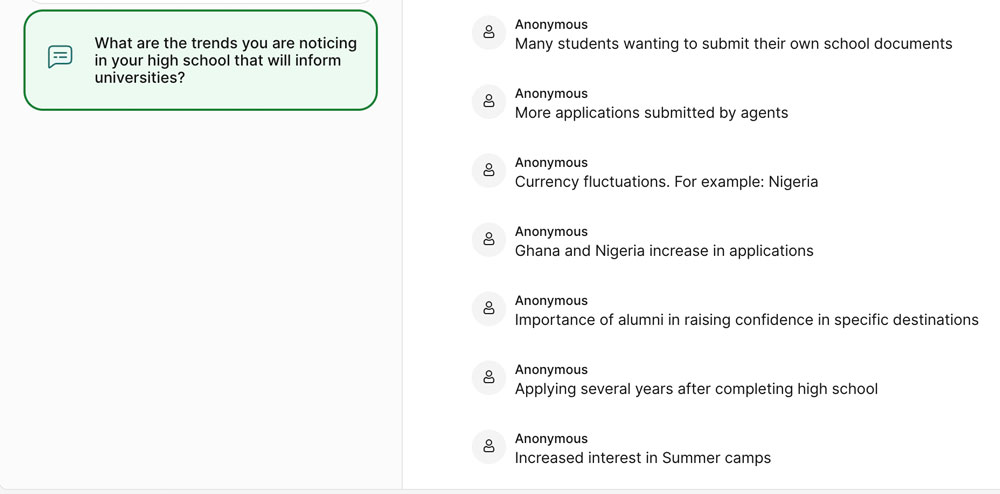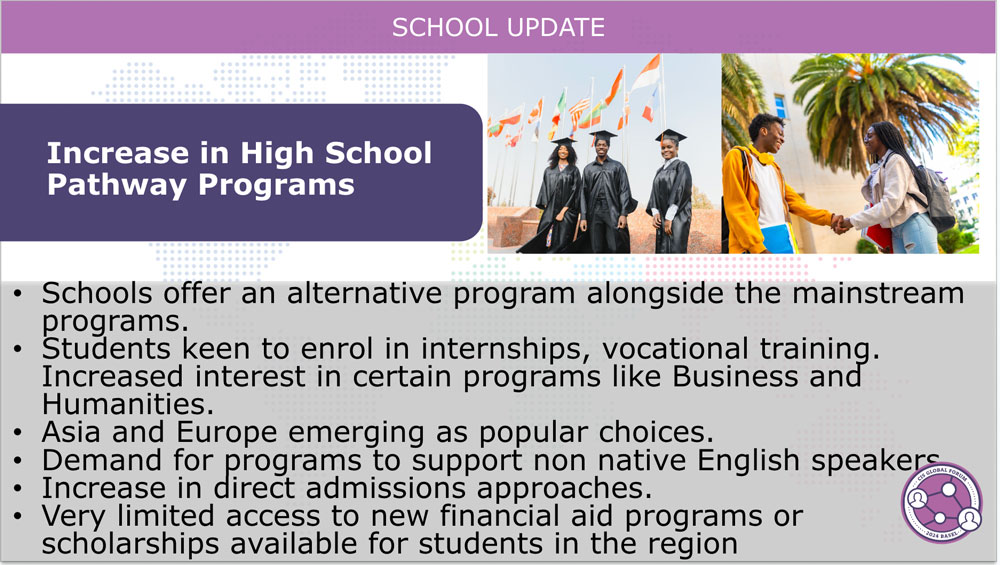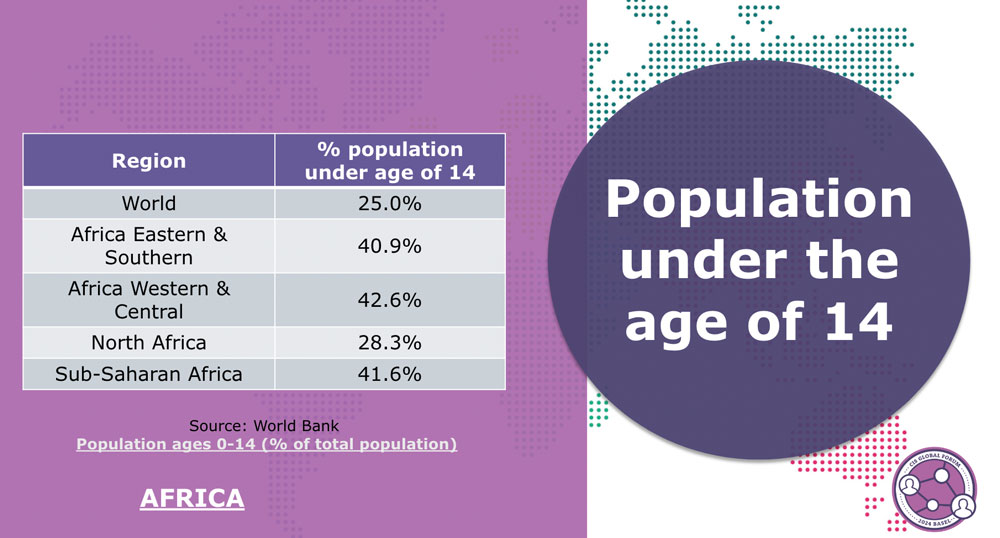
This year at the Council of International Schools (CIS) Global Forum on International Admission and Guidance in Basel, Switzerland, a recurring theme emerged: the critical value of regional updates in shaping our understanding of higher education. As a part of the Forum Planning Committee (FPC), I was involved in discussions that highlighted how these updates provide higher education professionals with a lens to view the regional landscape of international schools and how it impacts admissions and student recruitment.
Regional updates are the foundation for meaningful collaboration, informed decision-making, and effective student support. My session, Regional Chats: Africa Overview, focused on offering counselors and university officers an overview of trends in the African region and opening the floor for shared insights, questions, and discussions about trends, opportunities, and challenges in recruitment, admissions, and much more.
Why Regional Updates Matter
Understanding Local Contexts:
Higher education is influenced by regional dynamics, from curriculum changes to economic and socio-political factors. In Africa, for instance, we see a growing focus on expanding access to quality secondary education and increasing student mobility to international universities. Regional updates help professionals stay attuned to these nuances, enabling them to offer relevant support to students and families.
Responding to Global Trends Locally:
While global trends like the rise of generative artificial intelligence or shifts in student mobility patterns affect everyone, their implications vary widely by region. During the Africa overview, discussions touched on how international schools are responding to technological advancements and adapting curricula to prepare students for a digitally driven future.
Fostering Collaborative Solutions:
Regional updates serve as a platform for professionals to exchange best practices and collectively address challenges. Whether it’s navigating visa processes or understanding the needs of a diverse student population, these conversations are essential for creating sustainable and inclusive solutions.
Here is an example of a live survey completed during the session:

Building Stronger Networks:
One of the Forum’s central goals was to connect professionals from CIS schools and universities. Regional sessions offered a space to build relationships with colleagues who share a focus on specific regions, strengthening networks that can be leveraged throughout the year. Many participants connected through the conference app that was facilitated in this session.
Key Insights from the Africa Overview Session
Trends in International Schools: A noticeable increase in interest among African students to pursue science, technology, engineering, and math (STEM) fields, driven by expanding access to tech education and innovative extracurricular programs.
University Recruitment Focus: Universities are tailoring outreach efforts to address regional barriers, such as misconceptions about affordability and availability of scholarships.
Counselor Perspectives: Counselors emphasized the importance of contextualizing application narratives, encouraging students to highlight their unique regional experiences and contributions.
Here are other perspectives shared by counselors in the region:

The 2024 CIS Global Forum highlighted how these updates inform broader conference themes, such as building professional knowledge, understanding technology’s role in education, and navigating curriculum diversity. Regional sessions also offer a collaborative space for attendees to engage with critical questions, such as “What trends in your high school will inform universities?” The answers provide universities with actionable insights to refine their recruitment strategies and support student success. For example, one of the key data summaries shared was the population under the age of 14. In the next decade, Africa will have the youngest population, hence the higher education needs and opportunities will increase exponentially. This information in itself is exciting for educators.

Through this session, I also heard the participants realize the transformative power of regional updates. They shared how connecting through shared knowledge while honoring the unique characteristics of each region, reinforces the idea that global education is not a one-size-fits-all endeavor but a mosaic of interconnected local contexts. As an advocate of inclusion, this was my big takeaway.
As education professionals, we have a responsibility to keep regional perspectives as a guide to improving our work. Staying informed about regional developments is essential to fostering equity and inclusion in international education.
Shwetangna Chakrabarty is an international educator and a CIS forum planning committee member. She has over 17 years of experience in teaching different curricula in different countries. She has held multiple positions as an international educator: Curriculum Coordinator, University Counselor, Capstone/Research Project Manager, Council of International Schools and The New England Association of Schools and Colleges Accreditation Coordinator, International Baccalaureate Examiner, the International Baccalaureate educator network program leader, and teacher. She is passionate about developing a culture of internationalism in education and being a change-maker and thought leader in international education. She is the Editor of The International Educator (TIE).